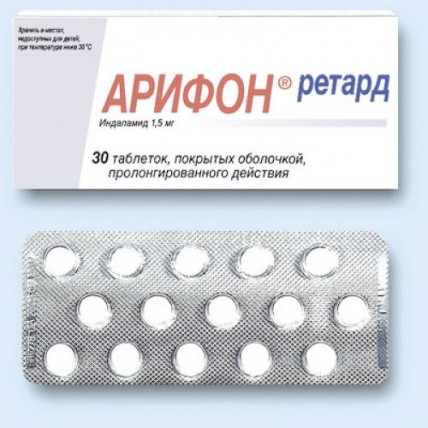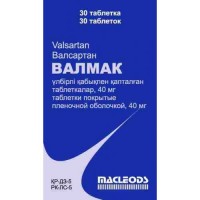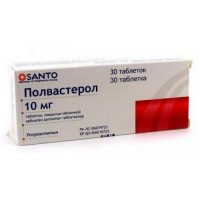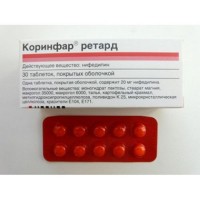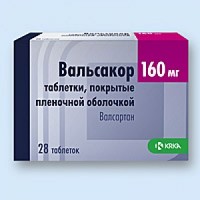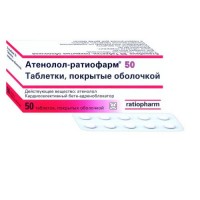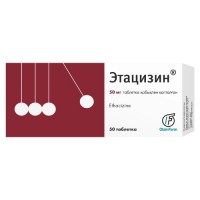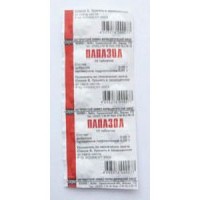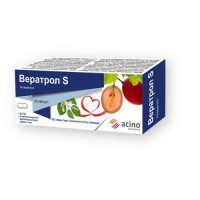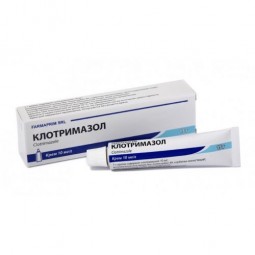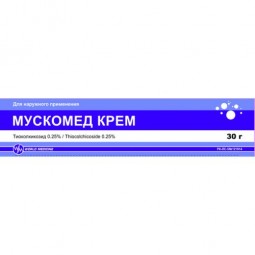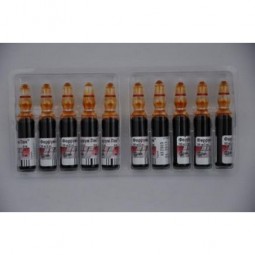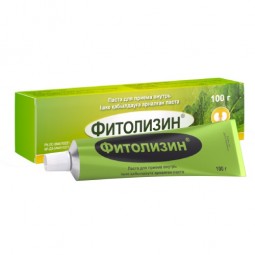Arifon retard 1.5 mg retard (30 tablets)
- $20.10
The instruction for medical use
of ARIFON® RETARD medicine
the Trade name
of Arifon® Retard
Mezhdunarodnoye the unlicensed
name Indapamid Lekarstvennaya
the Tablet form, film coated, with the prolonged release of 1.5 mg
Structure
One tablet contains
active agent - indapamid 1.5 mg,
excipients: gipromelloza, lactoses monohydrate, magnesium stearate, povidone, silicon dioxide colloidal anhydrous,
structure of a film cover: glitserol, gipromelloza, macrogoal 6000, magnesium stearate, titan dioxide (E171)
Description
Round tablets, film coated white color.
Pharmacotherapeutic group
Diuretics. Not thiazide diuretics operating on a cortical segment of a Henle's loop. Sulfonamides. Indapamid.
The ATX C03BA11 code
the Pharmacological
Pharmacokinetics In properties the tablets Arifon® Retard active agent dispersirovano in a matriksny basis that allows it to be released and provide gradually prolonged action.
Absorption
the Released active agent is quickly and completely absorbed in digestive tract. Meal slightly increases drug absorption speed, but at the same time does not influence amount of the absorbed substance.
The maximum concentration of drug in blood serum (Cmax) is reached in 12 h after single dose.
At repeated methods of fluctuation of concentration of an indapamid in blood plasma in an interval between receptions of two doses are insignificant.
RaspredelenieSvyazyvanie the indapamida with proteins of blood plasma makes 79%.
Elimination half-life (T1/2) makes from 14 to 24 h (on average 18 h).
Equilibrium concentration is established in 7 days of regular reception.
Repeated administration of drug does not lead to its accumulation in an organism.
Metabolism and removal
Indapamid is exposed to biotransformation and is removed in the form of inactive metabolites, generally with urine - 70% and a stake - 22%.
At patients with a renal failure the pharmacokinetic parameters do not change.
A pharmacodynamics
Active agent of the drug Arifon® Retard - indapamid – derivative sulfonamide with an indole ring. Its pharmacological properties are similar to thiazide diuretics which effect is connected with inhibition of the return absorption of sodium and chlorides and, to a lesser extent, potassium and magnesium in this connection the diuresis increases and the antihypertensive action remaining within 24 hours develops.
Effect of drug is connected with improvement of elasticity of walls of arteries and decrease in arterial and general peripheric vascular resistance.
Арифон® Retard reduces a hypertrophy of a left ventricle due to reduction of the sizes of cardiomyocytes and change of a ratio collagen/elastin.
At the doses exceeding a certain level, tiazida and diuretics on its basis have identical therapeutic influence while the frequency of manifestation of the side effects connected with their diuretic action (for example, a hypopotassemia), increases. Therefore if treatment is inefficient, the dose should not be increased.
Арифон® Retard unlike thiazide diuretics does not influence metabolism of lipids (triglycerides, LDL-cholesterol and LPVP-cholesterol) and does not change parameters of carbohydrate metabolism, including at patients with hypertensia and diabetes.
Indications
- essential arterial hypertension
the Route of administration and doses
is recommended to take the Drug on one tablet a day once, it is desirable in the morning. It is necessary to swallow of tablets, without chewing, washing down with water.
Higher doses do not strengthen action of Arifona® Retard, but lead to strengthening of diuretic effect.
Therapeutic influence of thiazide and tiazidopodobny diuretics is most effective if functions of kidneys are normal or are broken in insignificant degree. In a heavy renal failure (clearance of creatinine less 30ml/mines) drug treatment is contraindicated.
At elderly the clearance of creatinine is counted taking into account age, weight and a sex of the patient. Treatment of elderly patients of Arifonom® Retard perhaps only if it is normal of function of kidneys or is broken slightly.
In the presence of heavy abnormal liver functions the drug treatment is contraindicated.
Side effects
Very often (& gt, 1/10), it is frequent (& gt, 1/100, & lt, 1/10), infrequently (& gt, 1/1000, & lt, 1/100), is rare (& gt, 1/10000, & lt, 1/1000), is very rare (& gt, 1/10000), frequency is not established (on the basis of the available data it is not possible to carry out the development frequency assessment).
Often
- makulo-papular rashes
Infrequently
- vomiting
- an allergic purpura
Seldom
- nausea, dryness in a mouth, a constipation
- dizziness, feeling of fatigue, a headache, paresthesias
Is very rare
- arrhythmia, arterial hypotension
- pancreatitis
- a renal failure
- an abnormal liver function
- thrombocytopenia, a leukopenia, an agranulocytosis, hypoplastic anemia, hemolytic anemia, a hypercalcemia
- a Quincke's disease and/or a small tortoiseshell, a toxic epidermal necrolysis, a malignant exudative erythema
Frequency is not established
- development of hepatic encephalopathy in case of a liver failure, hepatitis, increase in level of liver enzymes
- a syncope
- possible deterioration in a course of the existing sharp disseminate lupus erythematosus
- the increased photosensitivity
- a considerable hypopotassemia, especially at patients with high risk (see. Special instructions)
- a hypopotassemia
- a hyponatremia with a hypovolemia, leading to dehydration and development of orthostatic hypotension. The accompanying loss of chlorides can lead to a secondary compensatory metabolic alkalosis (seldom).
- increase in level of uric acid in plasma and sugar in blood during treatment (need of prescribing of drug has to be carefully weighed at patients with gout and diabetes)
- lengthening of an interval of QT on the ECG
- Bouveret's ventricular disease like
Contraindication pirouette
- hypersensitivity to an indapamid, other sulfonamides or one of excipients
- a renal failure (clearance of creatinine less than 30 ml/min.)
- hepatic encephalopathy or heavy abnormal liver functions
- a hypopotassemia
- a congenital galactosemia, a glyukozo-galaktozny malyabsorbtsionny syndrome and/or deficiency of Lappa lactase
- pregnancy and the period of a lactation
- children's and teenage age up to 18 years.
Retard is not recommended to apply medicinal interactions of Arifon® along with lithium drugs in connection with risk of increase in concentration of lithium in blood and development of symptoms of overdose and also at a saltless diet (decrease in removal of lithium with urine). In need of purpose of such combination it is necessary to control carefully lithium level in blood plasma and to adjust a dose of diuretics.
It is necessary to be careful at co-administration with:
- antiarrhytmic drugs of the class IA (quinidine, hydroquinidine, Disopyramidum) and class III (Amiodaronum, sotalol, dofetilid, ibutilid),
- some antipsychotic drugs – fenotiazina (Chlorpromazinum, tsiamemazin, levomepromazinum, thioridazine, triftoperazin), benzamides (amisulpirid, Sulpiridum, sultoprid, tiaprid), phenyl propyl ketones (Droperidolum, a haloperidol),
- other drugs: bepridit, tsizaprid, difemanit, erythromycin intravenously, galofantrin, mizolastin, pentamidine, sparfloksatsin, moxifloxacin, Vincaminum intravenously.
Combinations of these drugs with Arifonom® Retard increase risk of developing ventricular arrhythmia (in particular, Bouveret's ventricular disease like pirouette). The hypopotassemia contributes to the development of this effect in this connection constant control of level of electrolytes, timely correction if necessary and monitoring of the ECG is necessary.
Non-steroidal anti-inflammatory drugs at system use, including acetylsalicylic acid in a dose 3g/put and selective inhibitors of cyclooxygenase-2 (TsOG-2), reduce hypotensive effect of inhibitors of angiotensin-converting enzyme (APF). Joint reception with these drugs increases risk of exacerbation of a renal failure in connection with decrease in glomerular filtration at patients with dehydration. From an initiation of treatment it is necessary to watch functional activity of kidneys and, if necessary, to provide sufficient hydration of an organism.
In the presence of a hyponatremia (especially at patients with a renal artery stenosis) co-administration of Arifona® Retard and APF inhibitors increases risk of developing the profound hypotension and/or acute renal failure. In cases of development of hypertensia as a result of the hyponatremia which developed after reception of Arifona® Retard, his reception is stopped in 3 days prior to treatment by APF inhibitor, renewing, if necessary, intake of kaliysberegayushchy diuretic or intake of APF inhibitor begin with a small dose, gradually raising it.
In the presence at the patient of cardiovascular insufficiency the intake of APF inhibitors is recommended to be begun with very small dose after a dose decline of the accepted kaliysberegayushchy diuretic.
In the first weeks of therapy by APF inhibitors it is necessary to control creatinine level in plasma and to watch functional activity of kidneys.
At simultaneous use of Arifona® Retard and the drugs reducing potassium level (Amphotericinum B intravenously, glyuko- and mineralokortikoida at system use, tetrakozaktid, the stimulating depletive) raises risk of development of a hypopotassemia. It is necessary to control potassium concentration and, if necessary, to adjust it. In need of prescribing of depletive it is necessary to use drugs without promoting effect on motility of intestines.
Corticosteroids and tetrakozaktid at system use reduce hypotensive action of Arifona® Retard at the expense of a delay of water and sodium.
Baclofenum enhances expressiveness of hypotensive effect of Arifona® Retard (it is necessary to control a functional condition of kidneys and to adjust water balance).
At joint purpose of Arifona® Retard with drugs of a digitalis it is necessary to consider that the hypopotassemia can strengthen toxic effect of cardiac glycosides. It is necessary to control the level of potassium and the ECG and, if necessary, to adjust therapy.
Kaliysberegayushchy diuretics (for example, Spironolactonum, Triamterenum or amiloride) in a combination with Arifonom® Retard can lead to a hypopotassemia (especially at patients with a renal failure or diabetes) or hyperpotassemias. If the accompanying use is shown, drugs have to be used with extra care and with frequent monitoring of content of potassium in serum and the ECG.
In the functional renal failure caused by action of Arifona® Retard, intake of metformin increases risk of developing lactic acidosis. It is not necessary to use metformin if the level of serumal creatinine exceeds 15mg/l (135 µmol/l) at men and 12mg/l (110 µmol/l) - at women.
In the considerable dehydration of an organism caused by intake of diuretic drugs the risk of developing a renal failure against the background of use of iodinated contrast agents in high doses increases. Before use of iodinated contrast agents it is necessary to carry out rehydration.
At simultaneous use of Arifona® Retard with Imipraminum-like antidepressants, neuroleptics owing to mutual strengthening of hypotensive effect raises risk of developing orthostatic hypotension.
At simultaneous use with salts of calcium the increase in content of calcium in blood plasma as a result of decrease in its excretion with urine is possible.
At use of Arifona® Retard against the background of cyclosporine and a takrolimus raises creatinine level in plasma even at the normal state of water and electrolytic balance.
Special instructions
At the available abnormal liver function thiazide and tiazidopodobny diuretics can increase risk of developing hepatic encephalopathy. In such cases the intake of diuretic drugs is stopped.
Cases of the increased photosensitivity at intake of thiazide and tiazidopobny diuretics are noted. During treatment it is recommended to protect skin from influence of solar and artificial ultraviolet rays. If during treatment the increased photosensitivity is noted, then administration of drug is recommended to be stopped.
It is necessary to control carefully the level of sodium and potassium in blood, especially at elderly patients, patients with cirrhosis, coronary heart disease, heart failure, the exhausted patients and/or the taking several drugs at the same time. The hypopotassemia (& lt, 3.4mmol/l), especially at the available lengthening of an interval of QT and bradycardia, can lead to development of disturbances of a warm rhythm like pirouette. At the low level of potassium the drug dose adjustment is required.
Intake of thiazide and tiazidopodobny diuretics can lead to decrease in excretion of calcium with urine and to development of a hypercalcemia (it is necessary to differentiate with a hyperparathyreosis).
At patients with diabetes it is regularly necessary to carry out monitoring of level of glucose to blood, especially in the presence of a hypopotassemia.
At patients with the increased content of urates in blood the development of gout or increase of attacks at the available gout is possible.
Therapeutic influence of thiazide and tiazidopodobny diuretics is most effective at normal function of kidneys or with small deviations (clearance of creatinine & lt, 25 mg/l or 220 µmol/l for adults). At elderly patients the level of creatinine has to be established taking into account age, weight and a floor.
The hypovolemia caused by loss of water and sodium, arising at the beginning of administration of drug leads to decrease in glomerular filtration and increase in content of urea and creatinine in blood plasma that can aggravate the available renal failure.
Active agent of the drug ArifonÒ Retard can affect results of doping tests.
The feature of influence of medicine on ability to run motor transport and potentially dangerous mechanisms
Should be careful during the driving of motor transport and work with potentially dangerous mechanisms in connection with possible development of the individual reactions connected with decrease in the ABP, especially at the initial stage of treatment or at combination therapy with hypotensive drugs.
Overdose
Symptoms: nausea, vomiting, the profound hypotension, spasms, dizziness, the drowsiness, confusion of consciousness, a hyponatremia, a hypopotassemia, a polyuria or an oliguria which is coming to an end with an anury (owing to a hypovolemia).
Treatment: gastric lavage and/or prescribing of activated carbon, with the subsequent recovery of water and electrolytic balance in the conditions of hospitalization.
The form of release and packing
On 15 tablets place in blister strip packagings from a film of polyvinylchloride and aluminum foil.
On 2 planimetric packs together with the instruction for medical use in the state and Russian languages put in a pack cardboard.
To Store storage conditions at a temperature not above 30 °C.
To store out of children's reach!
2 years
not to accept a period of storage after the expiration date specified on packing
Prescription status
According to the prescription
Les Laboratoires Servier Industrie Producer, France
the Owner of the registration certificate
of Les Laboratoires Servier, France
the Address of the organization accepting in the territory of the Republic of Kazakhstan claims from consumers on quality of products (goods):
Representation Le Laboratoir of S.A.S. Servye. in PK
050020, Almaty, Dostyk Ave of 310 g, Business center, the 3rd floor
Ph.: (727) 386 76 62/63/64/70/71
Fax: (727) 386 76 67
E-mail:
To develop kazadinfo@kz.netgrs.com
of ARIFON® RETARD medicine
the Trade name
of Arifon® Retard
Mezhdunarodnoye the unlicensed
name Indapamid Lekarstvennaya
the Tablet form, film coated, with the prolonged release of 1.5 mg
Structure
One tablet contains
active agent - indapamid 1.5 mg,
excipients: gipromelloza, lactoses monohydrate, magnesium stearate, povidone, silicon dioxide colloidal anhydrous,
structure of a film cover: glitserol, gipromelloza, macrogoal 6000, magnesium stearate, titan dioxide (E171)
Description
Round tablets, film coated white color.
Pharmacotherapeutic group
Diuretics. Not thiazide diuretics operating on a cortical segment of a Henle's loop. Sulfonamides. Indapamid.
The ATX C03BA11 code
the Pharmacological
Pharmacokinetics In properties the tablets Arifon® Retard active agent dispersirovano in a matriksny basis that allows it to be released and provide gradually prolonged action.
Absorption
the Released active agent is quickly and completely absorbed in digestive tract. Meal slightly increases drug absorption speed, but at the same time does not influence amount of the absorbed substance.
The maximum concentration of drug in blood serum (Cmax) is reached in 12 h after single dose.
At repeated methods of fluctuation of concentration of an indapamid in blood plasma in an interval between receptions of two doses are insignificant.
RaspredelenieSvyazyvanie the indapamida with proteins of blood plasma makes 79%.
Elimination half-life (T1/2) makes from 14 to 24 h (on average 18 h).
Equilibrium concentration is established in 7 days of regular reception.
Repeated administration of drug does not lead to its accumulation in an organism.
Metabolism and removal
Indapamid is exposed to biotransformation and is removed in the form of inactive metabolites, generally with urine - 70% and a stake - 22%.
At patients with a renal failure the pharmacokinetic parameters do not change.
A pharmacodynamics
Active agent of the drug Arifon® Retard - indapamid – derivative sulfonamide with an indole ring. Its pharmacological properties are similar to thiazide diuretics which effect is connected with inhibition of the return absorption of sodium and chlorides and, to a lesser extent, potassium and magnesium in this connection the diuresis increases and the antihypertensive action remaining within 24 hours develops.
Effect of drug is connected with improvement of elasticity of walls of arteries and decrease in arterial and general peripheric vascular resistance.
Арифон® Retard reduces a hypertrophy of a left ventricle due to reduction of the sizes of cardiomyocytes and change of a ratio collagen/elastin.
At the doses exceeding a certain level, tiazida and diuretics on its basis have identical therapeutic influence while the frequency of manifestation of the side effects connected with their diuretic action (for example, a hypopotassemia), increases. Therefore if treatment is inefficient, the dose should not be increased.
Арифон® Retard unlike thiazide diuretics does not influence metabolism of lipids (triglycerides, LDL-cholesterol and LPVP-cholesterol) and does not change parameters of carbohydrate metabolism, including at patients with hypertensia and diabetes.
Indications
- essential arterial hypertension
the Route of administration and doses
is recommended to take the Drug on one tablet a day once, it is desirable in the morning. It is necessary to swallow of tablets, without chewing, washing down with water.
Higher doses do not strengthen action of Arifona® Retard, but lead to strengthening of diuretic effect.
Therapeutic influence of thiazide and tiazidopodobny diuretics is most effective if functions of kidneys are normal or are broken in insignificant degree. In a heavy renal failure (clearance of creatinine less 30ml/mines) drug treatment is contraindicated.
At elderly the clearance of creatinine is counted taking into account age, weight and a sex of the patient. Treatment of elderly patients of Arifonom® Retard perhaps only if it is normal of function of kidneys or is broken slightly.
In the presence of heavy abnormal liver functions the drug treatment is contraindicated.
Side effects
Very often (& gt, 1/10), it is frequent (& gt, 1/100, & lt, 1/10), infrequently (& gt, 1/1000, & lt, 1/100), is rare (& gt, 1/10000, & lt, 1/1000), is very rare (& gt, 1/10000), frequency is not established (on the basis of the available data it is not possible to carry out the development frequency assessment).
Often
- makulo-papular rashes
Infrequently
- vomiting
- an allergic purpura
Seldom
- nausea, dryness in a mouth, a constipation
- dizziness, feeling of fatigue, a headache, paresthesias
Is very rare
- arrhythmia, arterial hypotension
- pancreatitis
- a renal failure
- an abnormal liver function
- thrombocytopenia, a leukopenia, an agranulocytosis, hypoplastic anemia, hemolytic anemia, a hypercalcemia
- a Quincke's disease and/or a small tortoiseshell, a toxic epidermal necrolysis, a malignant exudative erythema
Frequency is not established
- development of hepatic encephalopathy in case of a liver failure, hepatitis, increase in level of liver enzymes
- a syncope
- possible deterioration in a course of the existing sharp disseminate lupus erythematosus
- the increased photosensitivity
- a considerable hypopotassemia, especially at patients with high risk (see. Special instructions)
- a hypopotassemia
- a hyponatremia with a hypovolemia, leading to dehydration and development of orthostatic hypotension. The accompanying loss of chlorides can lead to a secondary compensatory metabolic alkalosis (seldom).
- increase in level of uric acid in plasma and sugar in blood during treatment (need of prescribing of drug has to be carefully weighed at patients with gout and diabetes)
- lengthening of an interval of QT on the ECG
- Bouveret's ventricular disease like
Contraindication pirouette
- hypersensitivity to an indapamid, other sulfonamides or one of excipients
- a renal failure (clearance of creatinine less than 30 ml/min.)
- hepatic encephalopathy or heavy abnormal liver functions
- a hypopotassemia
- a congenital galactosemia, a glyukozo-galaktozny malyabsorbtsionny syndrome and/or deficiency of Lappa lactase
- pregnancy and the period of a lactation
- children's and teenage age up to 18 years.
Retard is not recommended to apply medicinal interactions of Arifon® along with lithium drugs in connection with risk of increase in concentration of lithium in blood and development of symptoms of overdose and also at a saltless diet (decrease in removal of lithium with urine). In need of purpose of such combination it is necessary to control carefully lithium level in blood plasma and to adjust a dose of diuretics.
It is necessary to be careful at co-administration with:
- antiarrhytmic drugs of the class IA (quinidine, hydroquinidine, Disopyramidum) and class III (Amiodaronum, sotalol, dofetilid, ibutilid),
- some antipsychotic drugs – fenotiazina (Chlorpromazinum, tsiamemazin, levomepromazinum, thioridazine, triftoperazin), benzamides (amisulpirid, Sulpiridum, sultoprid, tiaprid), phenyl propyl ketones (Droperidolum, a haloperidol),
- other drugs: bepridit, tsizaprid, difemanit, erythromycin intravenously, galofantrin, mizolastin, pentamidine, sparfloksatsin, moxifloxacin, Vincaminum intravenously.
Combinations of these drugs with Arifonom® Retard increase risk of developing ventricular arrhythmia (in particular, Bouveret's ventricular disease like pirouette). The hypopotassemia contributes to the development of this effect in this connection constant control of level of electrolytes, timely correction if necessary and monitoring of the ECG is necessary.
Non-steroidal anti-inflammatory drugs at system use, including acetylsalicylic acid in a dose 3g/put and selective inhibitors of cyclooxygenase-2 (TsOG-2), reduce hypotensive effect of inhibitors of angiotensin-converting enzyme (APF). Joint reception with these drugs increases risk of exacerbation of a renal failure in connection with decrease in glomerular filtration at patients with dehydration. From an initiation of treatment it is necessary to watch functional activity of kidneys and, if necessary, to provide sufficient hydration of an organism.
In the presence of a hyponatremia (especially at patients with a renal artery stenosis) co-administration of Arifona® Retard and APF inhibitors increases risk of developing the profound hypotension and/or acute renal failure. In cases of development of hypertensia as a result of the hyponatremia which developed after reception of Arifona® Retard, his reception is stopped in 3 days prior to treatment by APF inhibitor, renewing, if necessary, intake of kaliysberegayushchy diuretic or intake of APF inhibitor begin with a small dose, gradually raising it.
In the presence at the patient of cardiovascular insufficiency the intake of APF inhibitors is recommended to be begun with very small dose after a dose decline of the accepted kaliysberegayushchy diuretic.
In the first weeks of therapy by APF inhibitors it is necessary to control creatinine level in plasma and to watch functional activity of kidneys.
At simultaneous use of Arifona® Retard and the drugs reducing potassium level (Amphotericinum B intravenously, glyuko- and mineralokortikoida at system use, tetrakozaktid, the stimulating depletive) raises risk of development of a hypopotassemia. It is necessary to control potassium concentration and, if necessary, to adjust it. In need of prescribing of depletive it is necessary to use drugs without promoting effect on motility of intestines.
Corticosteroids and tetrakozaktid at system use reduce hypotensive action of Arifona® Retard at the expense of a delay of water and sodium.
Baclofenum enhances expressiveness of hypotensive effect of Arifona® Retard (it is necessary to control a functional condition of kidneys and to adjust water balance).
At joint purpose of Arifona® Retard with drugs of a digitalis it is necessary to consider that the hypopotassemia can strengthen toxic effect of cardiac glycosides. It is necessary to control the level of potassium and the ECG and, if necessary, to adjust therapy.
Kaliysberegayushchy diuretics (for example, Spironolactonum, Triamterenum or amiloride) in a combination with Arifonom® Retard can lead to a hypopotassemia (especially at patients with a renal failure or diabetes) or hyperpotassemias. If the accompanying use is shown, drugs have to be used with extra care and with frequent monitoring of content of potassium in serum and the ECG.
In the functional renal failure caused by action of Arifona® Retard, intake of metformin increases risk of developing lactic acidosis. It is not necessary to use metformin if the level of serumal creatinine exceeds 15mg/l (135 µmol/l) at men and 12mg/l (110 µmol/l) - at women.
In the considerable dehydration of an organism caused by intake of diuretic drugs the risk of developing a renal failure against the background of use of iodinated contrast agents in high doses increases. Before use of iodinated contrast agents it is necessary to carry out rehydration.
At simultaneous use of Arifona® Retard with Imipraminum-like antidepressants, neuroleptics owing to mutual strengthening of hypotensive effect raises risk of developing orthostatic hypotension.
At simultaneous use with salts of calcium the increase in content of calcium in blood plasma as a result of decrease in its excretion with urine is possible.
At use of Arifona® Retard against the background of cyclosporine and a takrolimus raises creatinine level in plasma even at the normal state of water and electrolytic balance.
Special instructions
At the available abnormal liver function thiazide and tiazidopodobny diuretics can increase risk of developing hepatic encephalopathy. In such cases the intake of diuretic drugs is stopped.
Cases of the increased photosensitivity at intake of thiazide and tiazidopobny diuretics are noted. During treatment it is recommended to protect skin from influence of solar and artificial ultraviolet rays. If during treatment the increased photosensitivity is noted, then administration of drug is recommended to be stopped.
It is necessary to control carefully the level of sodium and potassium in blood, especially at elderly patients, patients with cirrhosis, coronary heart disease, heart failure, the exhausted patients and/or the taking several drugs at the same time. The hypopotassemia (& lt, 3.4mmol/l), especially at the available lengthening of an interval of QT and bradycardia, can lead to development of disturbances of a warm rhythm like pirouette. At the low level of potassium the drug dose adjustment is required.
Intake of thiazide and tiazidopodobny diuretics can lead to decrease in excretion of calcium with urine and to development of a hypercalcemia (it is necessary to differentiate with a hyperparathyreosis).
At patients with diabetes it is regularly necessary to carry out monitoring of level of glucose to blood, especially in the presence of a hypopotassemia.
At patients with the increased content of urates in blood the development of gout or increase of attacks at the available gout is possible.
Therapeutic influence of thiazide and tiazidopodobny diuretics is most effective at normal function of kidneys or with small deviations (clearance of creatinine & lt, 25 mg/l or 220 µmol/l for adults). At elderly patients the level of creatinine has to be established taking into account age, weight and a floor.
The hypovolemia caused by loss of water and sodium, arising at the beginning of administration of drug leads to decrease in glomerular filtration and increase in content of urea and creatinine in blood plasma that can aggravate the available renal failure.
Active agent of the drug ArifonÒ Retard can affect results of doping tests.
The feature of influence of medicine on ability to run motor transport and potentially dangerous mechanisms
Should be careful during the driving of motor transport and work with potentially dangerous mechanisms in connection with possible development of the individual reactions connected with decrease in the ABP, especially at the initial stage of treatment or at combination therapy with hypotensive drugs.
Overdose
Symptoms: nausea, vomiting, the profound hypotension, spasms, dizziness, the drowsiness, confusion of consciousness, a hyponatremia, a hypopotassemia, a polyuria or an oliguria which is coming to an end with an anury (owing to a hypovolemia).
Treatment: gastric lavage and/or prescribing of activated carbon, with the subsequent recovery of water and electrolytic balance in the conditions of hospitalization.
The form of release and packing
On 15 tablets place in blister strip packagings from a film of polyvinylchloride and aluminum foil.
On 2 planimetric packs together with the instruction for medical use in the state and Russian languages put in a pack cardboard.
To Store storage conditions at a temperature not above 30 °C.
To store out of children's reach!
2 years
not to accept a period of storage after the expiration date specified on packing
Prescription status
According to the prescription
Les Laboratoires Servier Industrie Producer, France
the Owner of the registration certificate
of Les Laboratoires Servier, France
the Address of the organization accepting in the territory of the Republic of Kazakhstan claims from consumers on quality of products (goods):
Representation Le Laboratoir of S.A.S. Servye. in PK
050020, Almaty, Dostyk Ave of 310 g, Business center, the 3rd floor
Ph.: (727) 386 76 62/63/64/70/71
Fax: (727) 386 76 67
E-mail:
To develop kazadinfo@kz.netgrs.com
